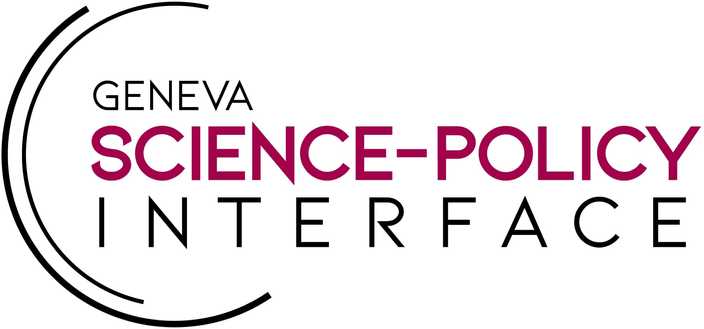The problem
The COVID-19 pandemic has brought worries about deadly engineered pathogens into public awareness. For years, experts have been warning of even deadlier outbreaks but a focus on short-term results hinders pandemic preparedness.
The past two decades have seen an increase in research, consultations and simulations on global catastrophic biological risks. Governments around the world have been sitting on a wealth of insights to build resilience to rare-yet-catastrophic events.
Any individual actor feels forced to resort to conservatism when facing (i) a glut of information of questionable quality, (ii) deep uncertainty about the consequences of their action and (iii) scrutiny from a public that desires clarity.
Global catastrophes require coordinated multilateral responses and close coordination between scientists and policy-makers but a bias towards symbolic action at regional and local scales impedes coordinated experimentation and learning.
Our solution
The brain learns best from experience. We offer an immersive exercise, adapted to the time-scarce reality of policy actors, allowing participants to practice decision-making and cooperation under pressure - online and offline.
Realistic dynamics on short time-scales provide fast feedback loops that train intuition and build systems competencies. The exercise places a particular focus on ways to model systems and maintain cooperation.
Sign-up
Our training programs are currently being tested with a selected audience.
Sign up to hear from us as soon as we can make you an appropriate offer.

Description
Target audience: Policy-makers and -networks working on pandemic preparedness
Project lead: Maxime Stauffer
Duration of the exercise: 2 hours
Number of participants: 6-12
Global catastrophic biological risks (GCBRs) are most likely to be sudden developments - novel and unresponsive to available medical countermeasures. Designing organisms, even by accident, that have an unprecedented capacity for harm is now considered within the reach of current biotechnologies.
While GCBRs represent a small portion of biological threats in the world and should not distract us from the work to prevent and respond to other vital disease priorities, GCBRs pose such extraordinary threats to humanity that they deserve high-level attention, risk assessment, resources, and strategic planning.
The consequences of GCBRs could be sudden widespread disaster beyond the collective capability of national and international governments to control. The sustained damage to national governments, international relations, societal and economic stability could further exacerbate the deadly effect.
To support efforts to build resilience to GCBRs, we offer a two-hour tabletop exercise with six to twelve participants to learn about each other, their environment, future pandemics and the effects of individual and collective decisions. Participants take on predefined roles and act in turns. The exercise dynamics mirror the unpredictability of the real world and immerse participants in the experience. Actors have different sets of resources and can take different actions. The evolution of the environment and the final outcome are a direct result of individual and collective choices.
The exercise will equip participants with knowledge about:
- systemic resilience and system dynamics;
- risk severity and probability; and
- interaction effects.
And sensitises participants to:
- the barriers to international cooperation;
- uncertainty and evidence-based policy; and
- extremely catastrophic scenarios and grand futures.
Participants will experience the consequences of their decisions in quick feedback loops, leading to scrutinize basic assumptions and understand interdependencies between different levels of governance and policy issues. Participants will also learn about tools to weigh conflicting preferences explicitly, process information collectively, avoid coordination failures and account for uncertainty while absorbing up to date knowledge on building resilience to future catastrophes.
Tabletop exercises are well-researched and have been experimented with for over a century under the label of “role-play simulations”. Our offer is built based on a systematic review of the academic literature to ensure robustly beneficial deployment by building on state of the art knowledge. Each run is complemented by a debriefing session to discuss the experience, possible questions or insights and to gather feedback. Contacts will be registered to collect feedback and assess impact.
No matter the scenario, participants will be able to leverage gained insights in any group decision-making setting to improve coordination by accounting for uncertainty and knowledge gaps in a future-proof manner.
If you have questions, comments or suggestions, please, get in touch. We are happy to answer questions, provide references, discuss ideas and explore collaborations.
Key references
Bontoux L, Sweeney JA, Rosa AB, et al. (2020) A Game for All Seasons: Lessons and Learnings from the JRC’s Scenario Exploration System. World Futures Review. 12(1):81-103. https://doi.org/10.1177/1946756719890524
Gandziarowska-Ziołecka J., Stasiak D. (2019) Simulation and Gaming for Policy Advice. In: Falk S., Glaab M., Römmele A., Schober H., Thunert M. (eds) Handbuch Politikberatung. Springer VS, Wiesbaden. https://doi.org/10.1007/978-3-658-03483-2_72
Wilkinson P. (2016) A Brief History of Serious Games. In: Dörner R., Göbel S., Kickmeier-Rust M., Masuch M., Zweig K. (eds) Entertainment Computing and Serious Games. Lecture Notes in Computer Science, vol 9970. Springer, Cham. https://doi.org/10.1007/978-3-319-46152-6_2”